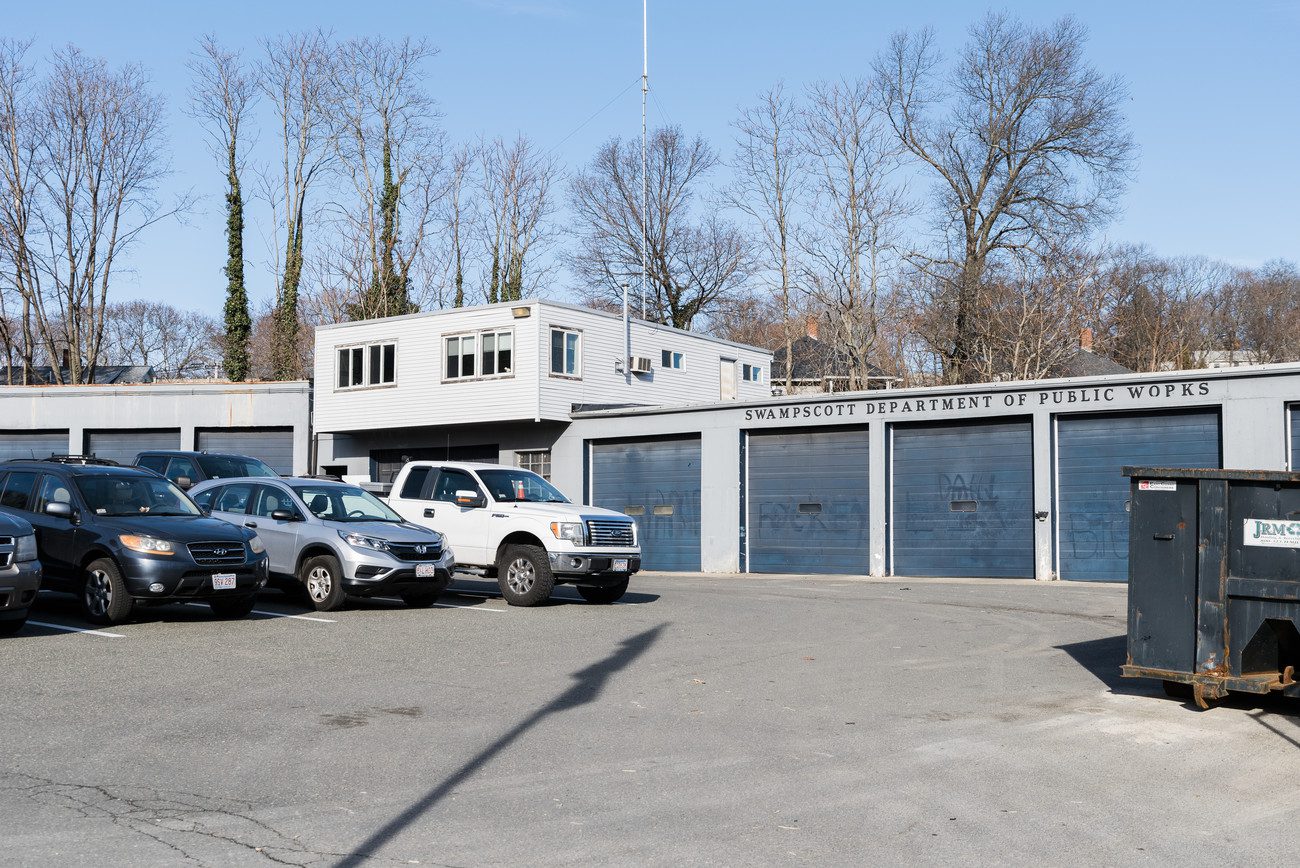SWAMPSCOTT — The Department of Public Works Employees Union has filed complaints against the town with the Department of Labor Relations for bargaining in bad faith, employing regressive bargaining practices and retaliating against a member of the union, involved in the bargaining.
“We will respond to those complaints and allegations,” said Town Administrator Sean Fitzgerald. “It is my hope that we can continue to negotiate and discuss some of these topics. It is our hope that we can work cooperatively with these unions.”
The previous collective-bargaining agreement between the town and the Swampscott Department of Public Works Employees Local 2610 of AFSCME AFL-CIO expired on June 30, 2020. The parties have been in negotiation since June 2020 and reached a tentative agreement on Oct. 7, according to the first complaint filed on Dec. 10.
The complaint said that the town, represented by Fitzgerald, failed to bargain in good faith, and that the employer has engaged in regressive bargaining and threatened a “last best offer,” despite an executed agreement.
On Oct. 11, members of the union reviewed the agreement and voted to ratify it.
Fitzgerald notified the union on Nov. 18 that the Select Board “wanted more time to digest the contract changes” and engaged in regressive bargaining, according to the complaint, by offering certain increases but removing all other conditions from the previous agreement. The complaint states that Fitzgerald said it was the town’s “last best offer.”
David “Archie” Lawless, head of the DPW union, said the members rejected the town’s new November proposal twice in writing and twice verbally.
Fitzgerald refused to confirm to the Item whether the Select Board reviewed and voted on the tentative deal he reached with the union in October. He also declined to discuss the reasons the Select Board renegotiated the deal.
Polly Titcomb, chair of the Select Board, said she could not speak to the details of negotiations, because negotiation was the role of the town administrator, while the board does not get involved at that level and has a fiduciary role.
“I do 100 percent believe that the town administrator negotiated those contracts in good faith,” she said.
Fitzgerald had provided the board with the information on the tentative agreement, Titcomb said, but due to a number of factors, the board felt they didn’t have enough time to review the agreement in sufficient detail, and have questions answered before the Town Meeting. That is why they conveyed to Fitzgerald that they would be more comfortable with approving retroactive salary increases for the fiscal year 2021 and FY22, while waiting to discuss other terms after the Town Meeting.
Titcomb said the board wanted DPW union members to be able to get salary increases in line with the cost-of-living adjustments — “the raises that they deserve.” Titcomb stressed that there is a good intent to go back and finish negotiations.
“It was not the board’s intention to negatively impact the unions in any way,” said Titcomb. “It’s just, everyone has their role and with our role, we felt we needed additional time.”
The Oct. 7 tentative agreement provided a retroactive salary increase of 3 percent, effective July 1, 2020, a 2-percent salary increase effective July 1, 2021 and a 2-percent increase effective July 1, 2022. The projected salaries in the tentative agreement ranged from $21.70 to $32.10 per hour, depending on employee classification.
The rejected agreement also offered a $2,500 one-time payment to all current members, in exchange for the town’s right to install GPS devices on all town vehicles, and to implement annual driving record checks and an annual performance evaluation that would not be tied to compensation.
The DPW workers were going to be offered life insurance that is offered to all other town employees, and additional increases for licensure ranging from $0.75 to $1.50 per hour, effective July 1, 2020. The town agreed to allocate funds for the necessary safety training beginning July 1, 2022.
The town would have been able to implement an automated time and attendance system to track time worked, according to the Oct. 7 tentative agreement.
The complaint also affects Swampscott Clerical Employees Union (Administrative Assistant Professional Union), which is a part of Local 2610 together with the DPW workers but under a separate contract, said Jim Durkin, AFSCME Council 93 spokesperson. The Administrative Assistant Professional Union has not had an updated bargaining agreement since June 2020 as well.
The second complaint was filed by AFSCME on behalf of Lawless, which was written after engaging in a conversation about ongoing negotiations with Fitzgerald at Town Hall on Aug. 3.
The complaint states that Lawless, who has been a laborer at the DPW for 18 years, voiced his frustration toward the lack of progress in the negotiation process, and walked away when the conversation became fervid. On Aug. 16, he was notified about a disciplinary action taken by the town against him for “disrespectful” and “hostile” behavior.
Lawless received a verbal warning, which was included into his personnel file. The complaint suggests that this situation is the town’s retaliation against Lawless for engaging in a concerted and protected activity by voicing his concerns to the town administrator.
Lawless said that he spoke in a “spirited tone” and with frustration that did not violate the labor law.
“I did not choose the location,” said Lawless. According to him, Fitzgerald initiated the conversation.
“Grievances are part of the due process, and while I can’t speak to any of the personnel matters, certainly, employees have the right to grieve disciplinary matters and we will work with the Department of Labor and fully cooperate and provide whatever information we can to address the complaint,” said Fitzgerald.

